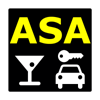Laws regarding sober driving are common knowledge by now, but awareness of distracted driving has yet to catch up.
Most BC residents know that the RCMP has begun to crack down on distracted driving, imposing harsher fines and more specific laws. But not all of us are aware of the details. Several rules of thumb will help keep you safe and protect you from a $368 fine and four penalty points.
Rule #1: One-Touch Only
If you only have to press one button to talk to someone, you can still press that button. For example, if you have a hands-free earpiece, pushing the button on it to answer a call is still allowed. But you must put it in your ear before you get on the road, not while you are driving. This also goes for older devices, such as two-way radios or push-to-talk microphones.
Rule #2: Secure It, Never Hold It
This goes for any electronic device–cell phone, GPS, anything. It must be affixed to the dashboard in a way that does not obstruct your view of the road, never held in your hand. Even a music player plugged into your car stereo is not allowed to “float free,” it must be attached to either your car or your body. Cell phone cradles that you can attach to your car interior are cheaper than getting a ticket for not using one!
Rule #3: Push to Talk, Pull Over to Type
Texting or manual dialing behind the wheel will get you a ticket. If you need to call or text, it’s understandable, the rule is simply to get off the road, put the car in park, and take care of it safely. Voice-activated dialing, or pushing a button to answer a call, is allowed.
Exception:
For “Class L” or “Class N” drivers, none of these rules apply. Earpieces are not allowed even if they are operated properly, and even hands-free electronic communication will get you a ticket. The rule is simply no electronic devices, at any time, while driving.
Summary:
Distracted driving is a problem people are only beginning to be aware of, but it is estimated to kill more than 78 people per year on average. Legally speaking, driving distracted is becoming more comparable to driving drunk. Fortunately, a few simple changes in one’s habits are all that is needed to keep everyone safe on the road.
